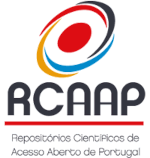Editorial
DOI:
https://doi.org/10.62741/ahrj.v1i3.23Abstract
Athena Health & Research Journal remains committed to showing impactful studies across diverse fields of health. As healthcare research continues to deepen our under-standing of human health and well-being, this issue exem-plifies our dedication to advancing knowledge that bridges the gap between research, clinical practice, and patient out-comes—particularly in rapidly evolving domains.This third edition highlights essential topics in healthcare practice and education, presenting studies on nursing com-petencies in primary care, pain management in emergency nursing, promotion of physical activity among nursing stu-dents, and the effects ofstatic stretching on shoulder joint mobility. Together, these articles offer valuable insights into the evolving roles of students and professionals in pri-mary care, health literacy, and well-beingpromotion.The modern landscape of healthcare research demands interdisciplinary collaboration and a forward-thinking approach to emerging technologies.We also emphasise the importance of inclusivity in re-search. Diverse perspectives are crucial for producing in-sights that genuinely represent global populations and propose strategies to expand access to quality healthcare worldwide.Our sincere gratitude goes to our contributors, reviewers, and readers for fostering a vibrant academic community. Your dedication enables Athena Health & Research Journal to continue serving as a platform for rigorous scholarship and as a catalyst for positive change in healthcare.We invite you to explore this issue, reflect on our progress, and join us in advancing the future of health research. Clarinda FestasDiretor of Fernando Pessoa Health School
Downloads
Published
Issue
Section
License
Copyright of published papers is assigned to the Journal, but all content is licensed under the terms of Creative Commons Non-comercial 4.0 International License. Thus users are allowed to read, download, copy, distribute, print, search, or link to the full texts of the articles, or use them for any other lawful purpose, without asking prior permission from the publisher or the author. This is in accordance with the BOAI definition of open access.














